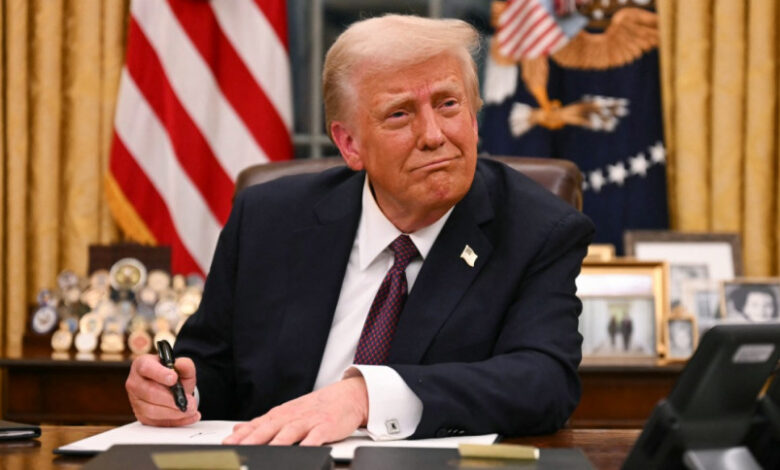Trump Demands Apology from Bishop Who Urged Him to ‘Have Mercy’ on LGBTQ+ Individuals and Migrants
Episcopal Bishop Mariann Budde’s plea for compassion during the Washington National Cathedral service draws sharp criticism from Trump, who labels her remarks as ‘political and nasty.’

- Bishop Budde called on Trump to show mercy to LGBTQ+ individuals and undocumented migrants during her sermon
- Trump criticized the sermon as "nasty" and "uninspiring," accusing Budde of politicizing the church
- The prayer service emphasized national unity, but Budde’s remarks sparked a polarizing debate
President Donald Trump on Wednesday called for an apology from the Episcopal bishop of Washington, the Right Rev. Mariann Budde, after she urged him during an inaugural prayer service to “have mercy” on the LGBTQ+ community and undocumented migrant workers.
Budde referenced Trump’s claim that divine providence saved him from an assassination attempt, stating, “You have felt the providential hand of a loving God. In the name of our God, I ask you to have mercy upon the people in our country who are scared now.”
Unimpressed by the remarks, Trump later criticized Budde on social media as a “Radical Left hardline Trump hater” who brought politics into the church in an “ungracious” and “nasty” manner. He further claimed the service was uninspiring and demanded an apology, asserting that Budde omitted acknowledgment of crimes committed by some migrants.
The Washington National Cathedral’s service, historically centered on unity, featured leaders from diverse faiths and focused on compassion and togetherness. However, Budde’s direct critique of Trump, coupled with her history of condemning his rhetoric and actions, including the 2021 Capitol riot and a controversial 2020 Bible photo-op, sparked polarized reactions.
While some praised Budde for speaking truth to power, Trump’s evangelical supporters decried her tone, labeling it insulting. Trump, who notably ignored Budde during the clergy procession, found solace in other elements of the service, including performances of his favorite hymns and songs.
This inaugural prayer service marked a departure from tradition, emphasizing national well-being over political partisanship—a shift that did not go unnoticed amid the fiery exchanges.





